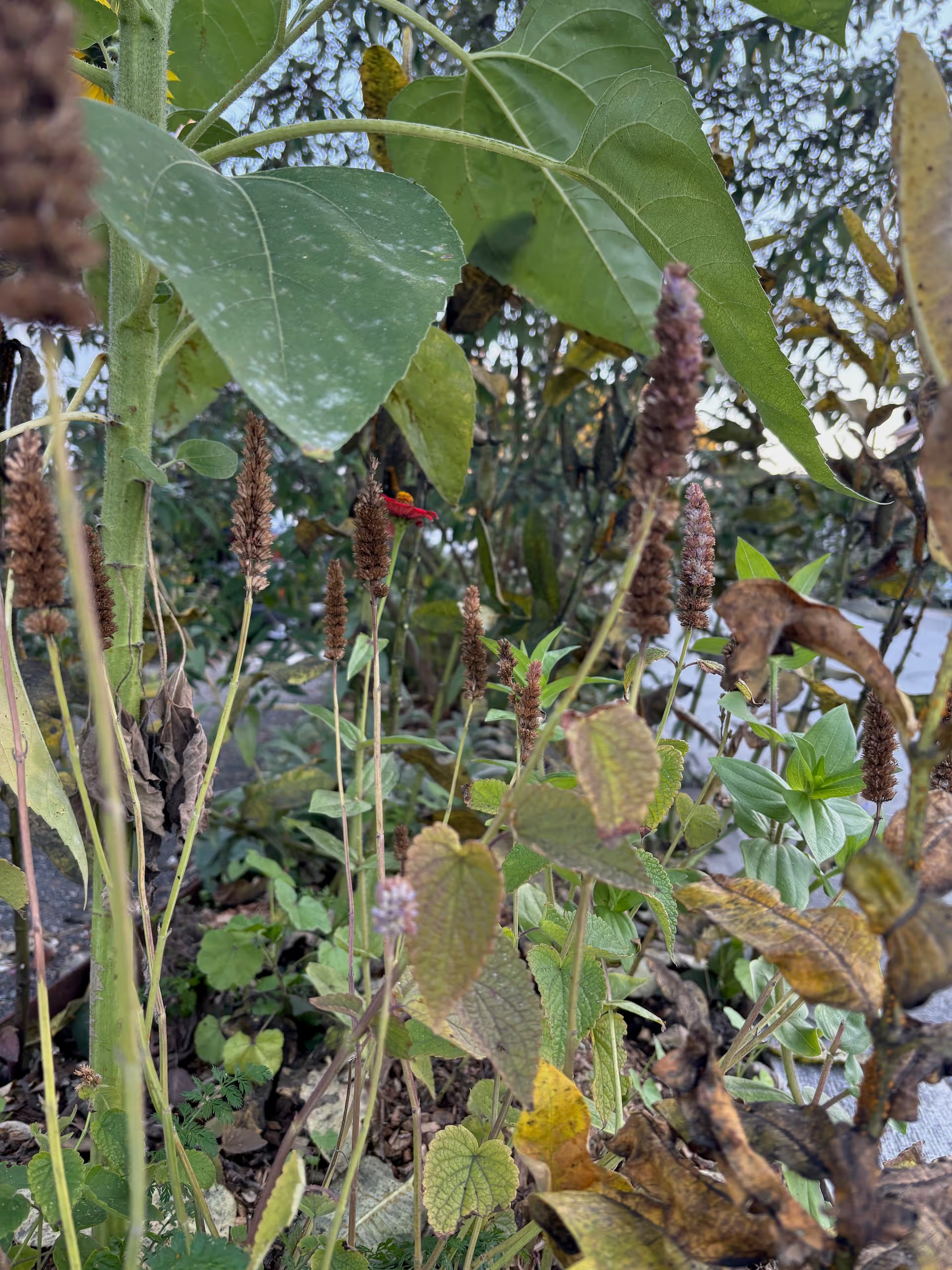Those of us of a certain age grew up having “fall clean-ups” in our flower gardens every year. Everything was cut down to the ground, raked up and disposed of.
Today we’ve learned that hacking down every vestige of garden vegetation in the fall is depriving birds, butterflies, bees and innumerable other insects and creatures of food sources and winter habitat.
Consider a few of the many organisms whose existence depends on finding a protected spot such as a flower garden to spend the winter.
- BEES: Many of North America’s 3,500 species of native bees overwinter in hollow plant stems. Joe-Pye weed, bee balm, bergamot, and any other species with hollow stems provide valuable winter habitats for bees.
- BUTTERFLIES: Many species of butterflies overwinter as chrysalises and can be found suspended from dead plant stems or tucked into garden leaf litter. Butterfly larvae spend the winter rolled up in fallen leaves or inside the seed pod of a host plant.
- LADYBUGS: Often these pest eaters overwinter in groups hidden under leaves or nestled at the base of a plant. Lucky is the gardener who hosts such a gathering, for they have a huge advantage come spring. BIRDS: Insect-eating birds like chickadees, titmice, woodpeckers and nuthatches glean insects off of dead plant stems and branches. Remaining seeds from native flowers such as asters, coneflowers and sunflowers feed any number of songbirds, including goldfinches and cardinals. PREDATORY INSECTS: Come spring, overwintering assassin bugs, lacewings, ground beetles and other predatory insects will keep pests in check as soon as they appear. (www.savvygardening.com )
Once the spring weather is consistently in the 50’s for several days, it is safe to head to the garden with pruning shears and a rake, for most insects have matured and/or emerged.
Thanks to books like Doug Tallamy’s Bringing Nature Home, we now know how important native plants are, especially for insects and birds. Our gardens play an important role in supporting wildlife and what we do in them every autumn can either enhance or inhibit that role. (Thanks to Jessie Schilling for proposing post subject.)
Naturally Curious is supported by donations. If you choose to contribute, you may go to http://www.naturallycuriouswithmaryholland.wordpress.com and click on the yellow “donate” button.
By Mary Holland


.jpg)
